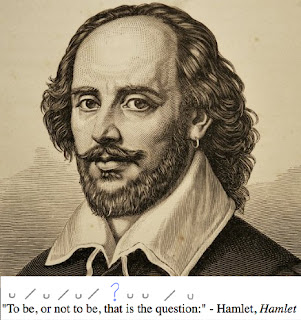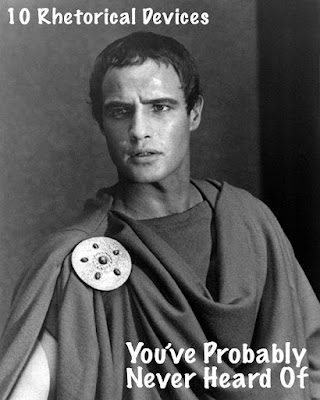An idiom is a phrase whose meaning is not deducible from the those of the individual words that compose it. Examples in modern English include: it's raining cats and dogs (it's raining heavily), it's a piece of cake (it's easy), and pull someone's leg (joke with someone).
Shakespeare's idioms can be more difficult to interpret, but you will recognize some because we have adopted them into modern English.
1. "It's all one" or "that's all one" or "'tis all one"
Meaning: it doesn't matter, it's all the same to me
Example: "I marvel why I answer'd not again; / But that's all one: omittance is no quittance." – Phebe, As You Like It (III.5.1764)
More Information: Shakespeare uses this expression on countless occasions, in plays ranging from Twelfth Night to Henry V to Romeo and Juliet. Rhetorically, the expression a paradox, because "all" and "one" have inherently conflicting meanings. So "all one" is not only an idiom, but also a demonstration of Shakespeare's wit.
2. "Laughing-stock[ ]"
Meaning: a person who is ridiculed or mocked
Example: "Pray you let us not be laughing-stocks to other men's humours" – Sir Hugh Evans, The Merry Wives of Windsor (III.1.1272)
More Information: This expression actually refers to the medieval punishment device of the stocks, a wooden structure with holes for securing a person's head, hands, and feet, in which criminals were locked and exposed to public ridicule. In modern English, there is no dash in between the two words of 'laughing stock.'
3. "Apple of [one's] eye"
Meaning: a thing or person that someone loves above all others
Example: "Hit with Cupid's archery, / Sink in apple of his eye." – Oberon, A Midsummer Night's Dream (III.2.1138)
More Information: This idiom actually dates back to the ninth century, when it was used in King Aelfred of Wessex's Gregory's Pastoral Care. The "apple" of the eye actually referred to the pupil of the human eye, which was at first believed to be a solid, round object. Shakespeare played a big role in popularizing this expression, which is still in use today.
4. "Wild-goose chase"
Meaning: pursuing a course that will lead nowhere, engaging in a difficult but pointless activity
Example: "Nay, if thy wits run the wild-goose chase, I have done" – Mercutio, Romeo and Juliet (II.4.1228)
More Information: A 16th century wild-goose chase did not involve geese at all: it was a game of horse racing in which one rider would led and the other riders would follow. This formation (with a single leader followed by a group) resembled that of a flying flock of wild geese. In a wild-goose chase, the lead rider would ride in a needlessly roundabout path, and twist and turn unexpectedly. The other riders would have to copy that overcomplicated path.
5. "Wear [one's] heart on [one's] sleeve" (Othello)
Meaning: expose one's emotions, make one's emotion known to all
Example: "But I will wear my heart upon my sleeve for daws to peck at: I am not what I am." – Iago, Othello (I.1.42)
More Information: This phrase probably originated during the Middle Ages in the context of jousting. In the Middle Ages, 'sleeve' referred to not only a shirt sleeve but also a piece of armor that covered and protected the arm. Before jousting, knights would often dedicate their performance to a woman of the court. They would often tie an article of her clothing––such as a scarf, ribbon, or handkerchief––around their sleeve of armor to indicate this dedication to spectators during the joust.




Comments
Post a Comment
All comments are moderated by the Green-Eyed Blogger to avoid spam. If you do not see your comment right away, do not worry; it is simply undergoing our routine moderation process.